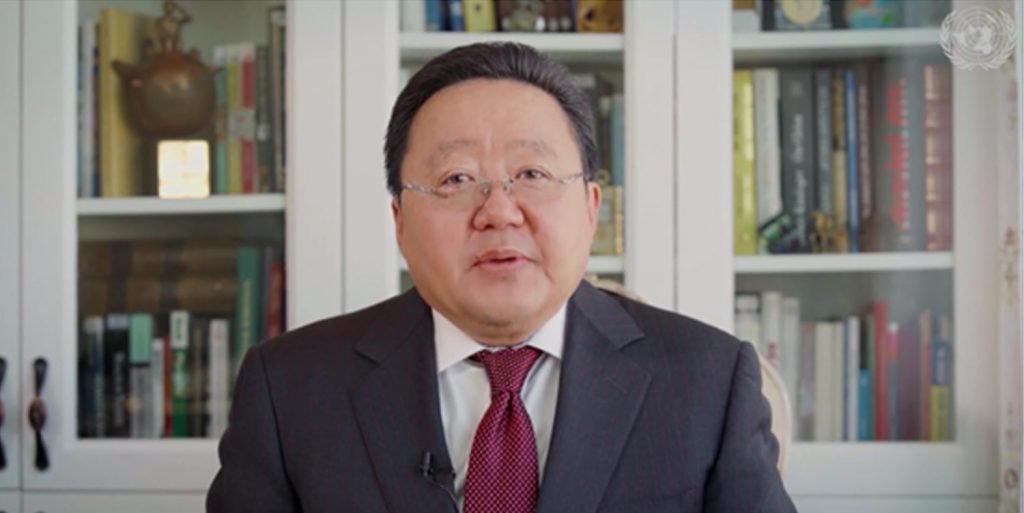On Tuesday this week former president of Mongolia, TSAKHIA ELBEGDORJ, interacted with members of Malawi Parliament and Cabinet ministers to lobby for abolition of the death sentence both in law and practice. During his tenure, Elbegdorj abolished the death penalty and has now become a global campaigner of the same. He is a commissioner for the International Commission against Death Penalty. Our Assistant Bureau Chief SUZGO CHITETE had a conversation with Elbegdorj, an accomplished politician who has served four times as Member of Parliament, twice as Prime Minister and two terms as president of Mongolia.
You are a strong global advocate for abolition of the death sentence. What is your argument?
Elbegdorj: One hundred and forty-one countries have already abolished it
Death sentence victimises the poor who maybe fronted for an offence they have not committed. I mean it does not work to the advantage of the mentally ill-people and less connected one. For their lack of resources, they may not put up a proper defense in court and end up victims of an offence they never committed. There are mis-judgements in the justice system, we know for a fact. Again if you kill the person, you forget that behind them they are usually organisers or real perpetrators of that crime who may benefit from that killing because evidence has been eliminated. Such people are left unpunished. If you keep that person alive in prison, you may find justice, you may find real perpetrators. In fact, real criminals, experience has shown, are not afraid of death penalty. This is why we have seen someone killing others and end up killing themselves as well. They shoot others and shoot themselves – meaning even death penalty may have no purpose for such criminals if caught. Take them to prison and let them suffer the pain while alive. Let them experience the shame.
This is not a straight-forward case. It is controversial and there are usually differences in opinion. How should Malawi go about it?
Malawi is already on the right path. A report was tabled in parliament recommending the abolition of death penalty. Those are right steps. The consultations to bring together all relevant stakeholders; religious leaders, civil society organisations, those who were on death sentence and resentenced, government officials is commendable. But to really abolish it one must exercise leadership, In Malawi both opposition and those in government are in support of abolition of death penalty. Malawi has not been executing convicts for 30 years – this means the death penalty has no purpose, no substance hence let it be abolished. This will boost Malawi’s image internationally. You know when I abolished death sentence my country became a shining example and it still is.
When did you abolish it?
We began the process in 2009; but we abolished it in 2017. It took me eight years. I served for eight years – two terms as President for my country and during that period I worked to abolish death sentence. I made changes in the Penal Code, I also used international law and the conventions that we signed up to abolish it. We needed to domesticate international law and with that it became easy.
In your presentation to members of Parliament and ministers you said this is one remarkable legacy that you left. I take it that by the time you made this decision there must have been pockets of opposition voices. Did you consult the people themselves on this?
In fact, even those who did not believe in this, today, agree that we made a good decision. I must be honest that when I made this decision I did little consultation because I knew that the majority in my country were for abolition of death penalty. All I needed was to exercise my leadership. I had to make that tough decision after which I had to continue explaining to my people. When you make a decision as a leader there will always be debate and questions; was it good or bad? But we continued to explain our position and eventually people began to understand my position.
So, five years later, what is the general mood and view about your decision from those who never agreed with you?
Well, there is a general consensus that we made the right decision. In fact the rate of murder cases have continued to decline. So, death penalty is not a deterrent but a push factor for others to commit crime – knowing they have nothing to lose. Death penalty pushes people to kill witnesses, to kill more victims especially those that are not afraid of dying and because of that death penalty really serves no purpose. It has no deterrent effect.
Well, quite interesting. Let’s hope members of parliament have picked something out of your presentation.
They must exercise leadership otherwise the debate will never end but at the end of the day they must make a decision which is in the interest of people. They are voted into power to make decisions. Out of 193 countries which have signed up to the relevant convention to abolish death penalty, 141 have already abolished it. These leaders can use this information to inform their decision and Malawi, like Mongolia, will become a good example in the eyes of the international community.
The post Death penalty campaign gains momentum appeared first on The Nation Online.
 Moni Malawi
Moni Malawi 
